YOUR BROWSER IS OUT-OF-DATE.
We have detected that you are using an outdated browser. Our service may not work properly for you. We recommend upgrading or switching to another browser.
Date: 27.06.2024 Category: student activity
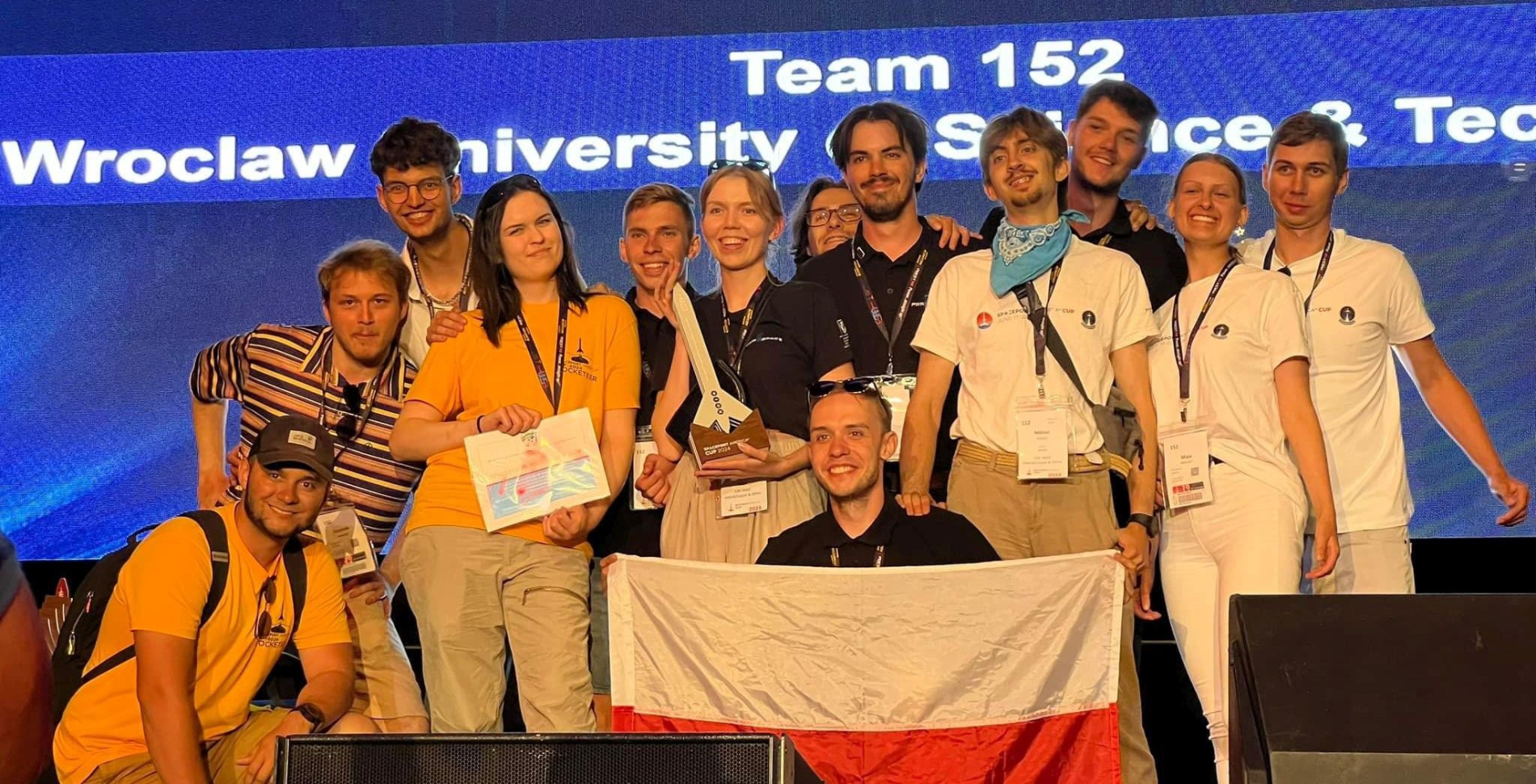
Students from the “PWr in Space” research club are celebrating the second place won at the prestigious international competition Spaceport America Cup. Named Aether, the rocket they designed and built competed in the hybrid rocket category. The Wrocław Tech students were the only Polish team at the competition.
The prestigious and very demanding competition was held in New Mexico. 152 teams from 150 universities worldwide – including the USA, Australia, Brazil, India, Peru, Thailand, Spain, and the UK – entered in several categories. The team from Wrocław University of Science and Technology was the only one from Poland.
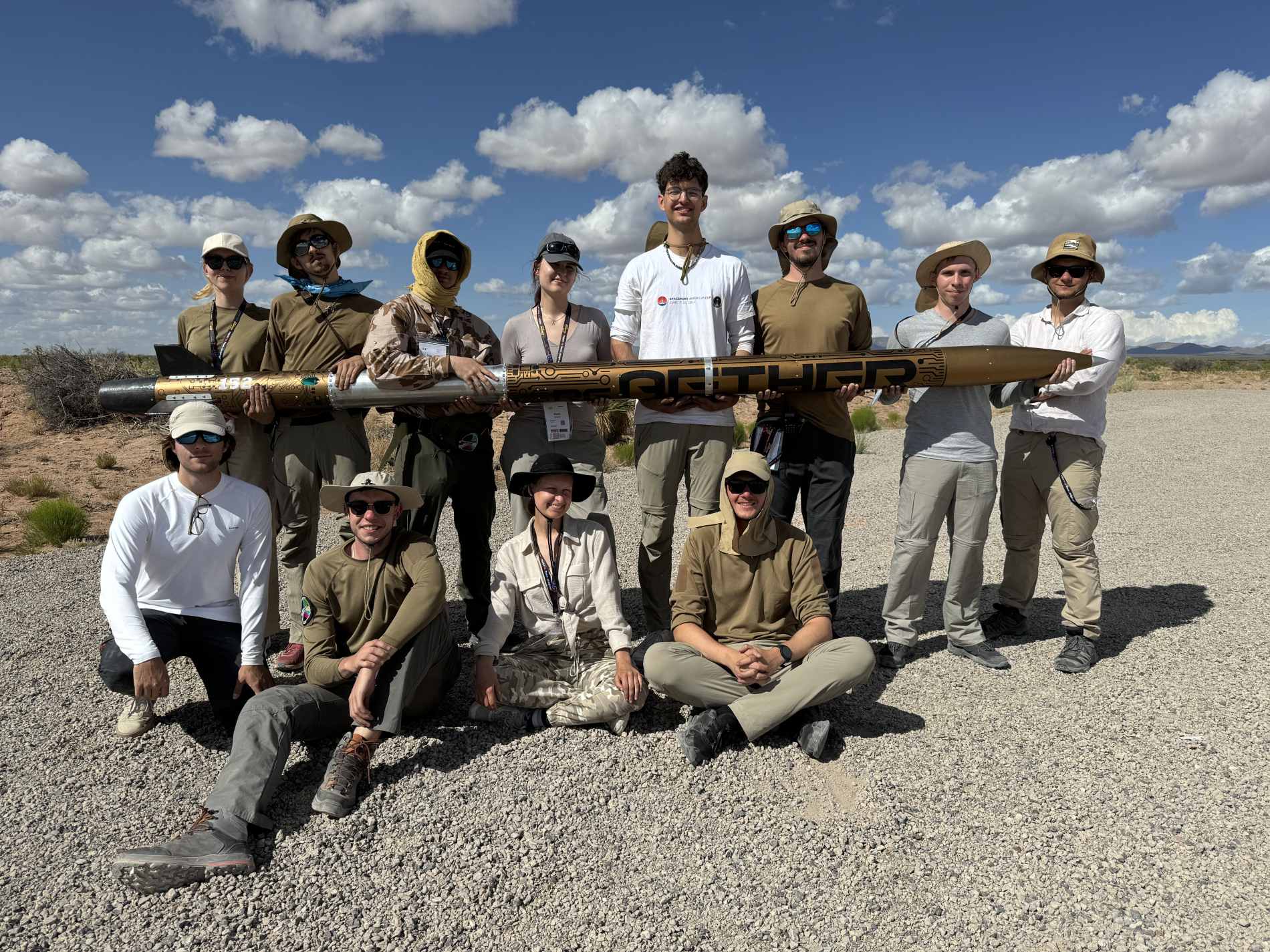
The “PWr in Space” club (taking part in the event as PoliWrocket) competed in the hybrid-powered rocket category (Hybrid&Liquid SRAD 10000 ft), where the most important task was to ascend to the altitude of 10,000 feet (which is exactly 3,048 metres). The idea was to come as close to the 3,048m altitude as possible. The further the rocket was from the set altitude, the more points a team would lose (the flight's correctness and the rocket's recovery phase, among other things, were assessed).
@politechnikawroclawska Studentki i studenci z @poliwrocket z drugim miejscem na zawodach Spaceport America Cup! Zobacz, jak wyglądały przygotowania do startu hybrydowej rakiety „Aether”. Ekipa z naszej uczelni zdobyła też drugie miejsce w kategorii Nancy Squires Team Spirit Award. #rakiety #zawodu #USA #rockatscience #pwrinspace #poliwrocket #pwr #politechnikawroclawska #najlepiejpwr #WUST #wroclawtech ♬ On Top Of The World - Imagine Dragons
Importantly, the teams had already been collecting points for several months – in preparation for the competition. Here, the assessments included criteria such as the timeliness of the documentation they provided and the quality of the technical design they sent.
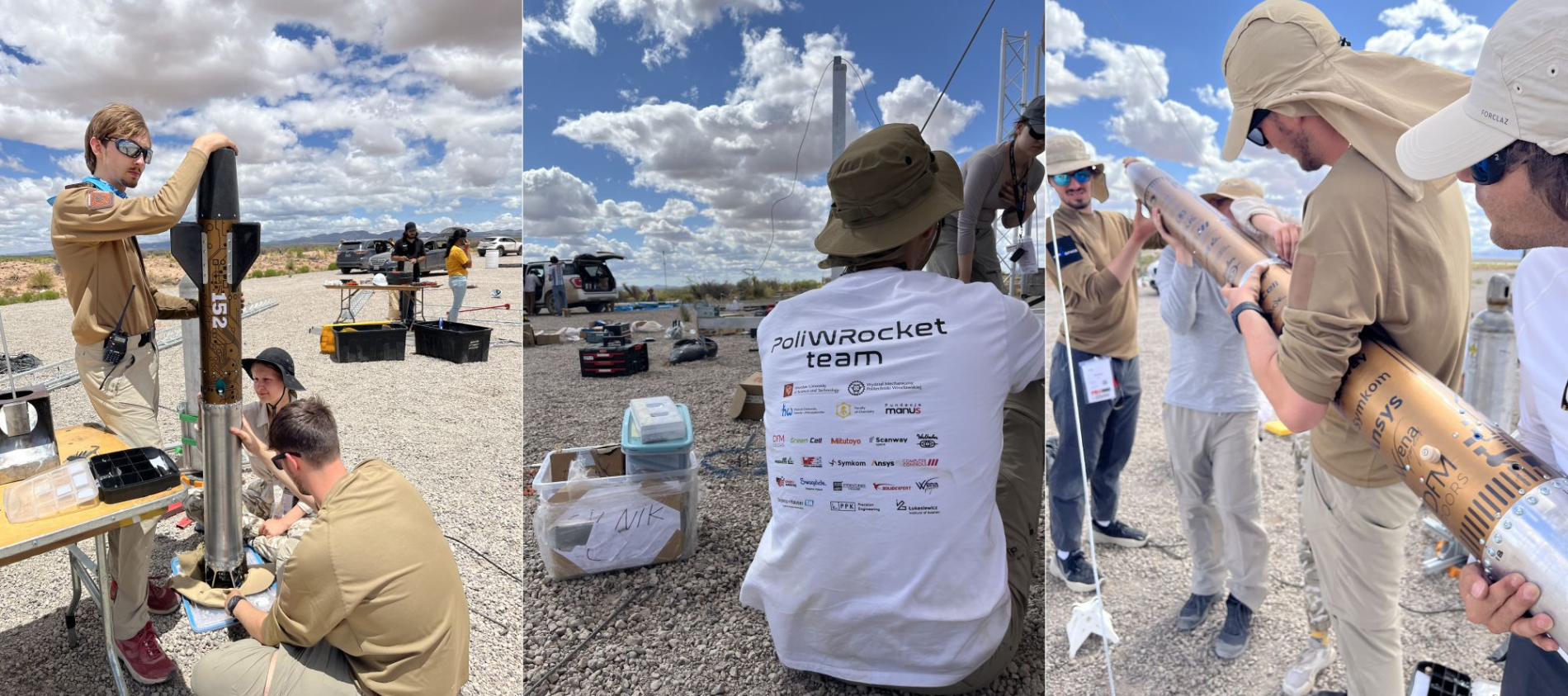
As for the competition itself, our team started it rather unluckily – a considerable delay in the shipment of the rocket meant that the students had just one night to prepare the machine for safety review. They didn’t give up, however, and the following day – after many hours of work – they were ready for the inspection, which they easily passed, and their rocket was rated very highly.
Wiktoria Mrowiec, a member of the team reports: “This year, we were very well prepared. In fact, the whole rocket was finished before the competition and really the only thing that held us back was the delay with the shipment of the crate. The crate was due to arrive in Las Cruces on Wednesday, but it didn’t come until Monday (the first day of the competition!), meaning we had five idle days of waiting. But it was because we were really very well prepared that we managed to go through all the verification procedures on time and with high scores.
As Wiktoria tells us, since the crate containing the rocket arrived in El Paso for customs inspection on Monday, the team took the initiative and contacted the Polish consul in Houston, who helped our group. As a result, the students travelled to El Paso on Monday to collect the contents of the crate.
“We only had a dozen or so hours to prepare the whole rocket, assemble it, and make some final adjustments for the Safety Review, during which the judges checked the safety of the rocket and its degree of ‘recoverability’,” says Victoria.
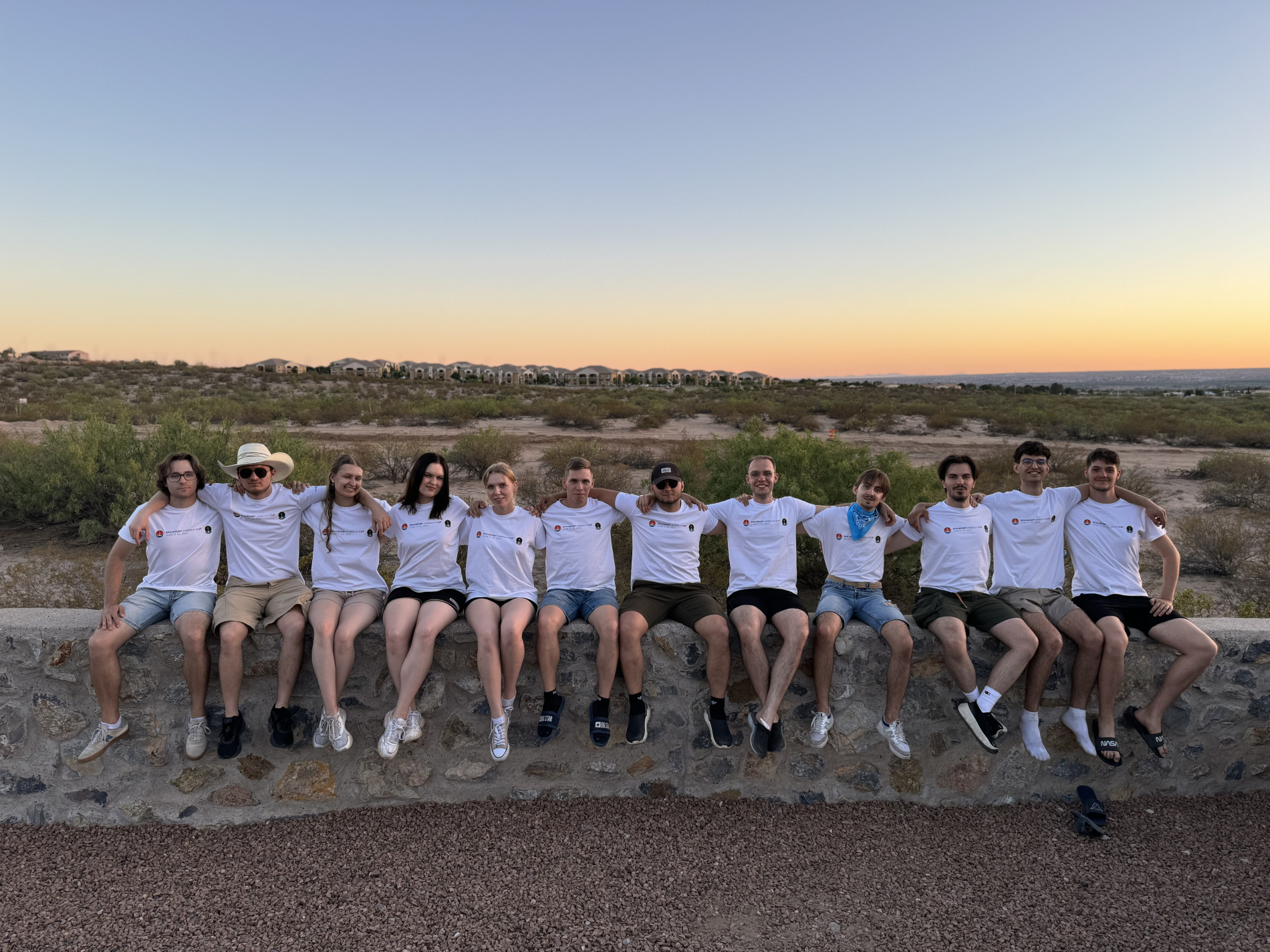
During the following four days, the team went through a Design Review (an assessment of each module of the rocket) and Preflight (in which it was decided that the rocket would be finally cleared for launch).
“The whole week was very busy. We hardly slept to be in time with all the preparations,” says the student. “We did our best to be ready for the launch procedure. Meanwhile, Friday turned out to be a rainy day (and it only rains a dozen days a year there!), so we had another whole day without work.
Wiktoria points out that rockets with hybrid propulsion are more technically complex than solid fuel rockets, which is why the launch of such a machine requires certain conditions to be met – not only technical preparation but also favourable atmospheric conditions as the launch is prevented by high gusts of wind or precipitation.
“As a result of all this, in the end, we were about two to three hours short of launching the rocket on Saturday. But we still managed to win second place in our category, in which four teams took part,” adds the student. “We were pretty much the only team that didn't launch their rocket, and we still managed to make it to the podium, which also showed our technical and how our rocket stands out from the others, not only in terms of external design but, more importantly, the high-quality construction of the rocket, the solutions used, and the overall design and consistency of the modules. Every judge who looked at our rocket during the verification phase was impressed, and we were given positive feedback about the support structure, the electronics, and the hybrid engine, so this is also a reward for us and a testimony to the quality of our work,” emphasises Wiktoria.
In addition to second place in the hybrid rocket category (altitude of 1,000 feet), “PWr in Space” also boasts a second prize in the Nancy Squires Team Spirit Award category. The accolade recognised the work done by the team, its commitment, and the cooperation of its members during the competition, as well as the promotional activities in support of the group itself and the event as a whole.
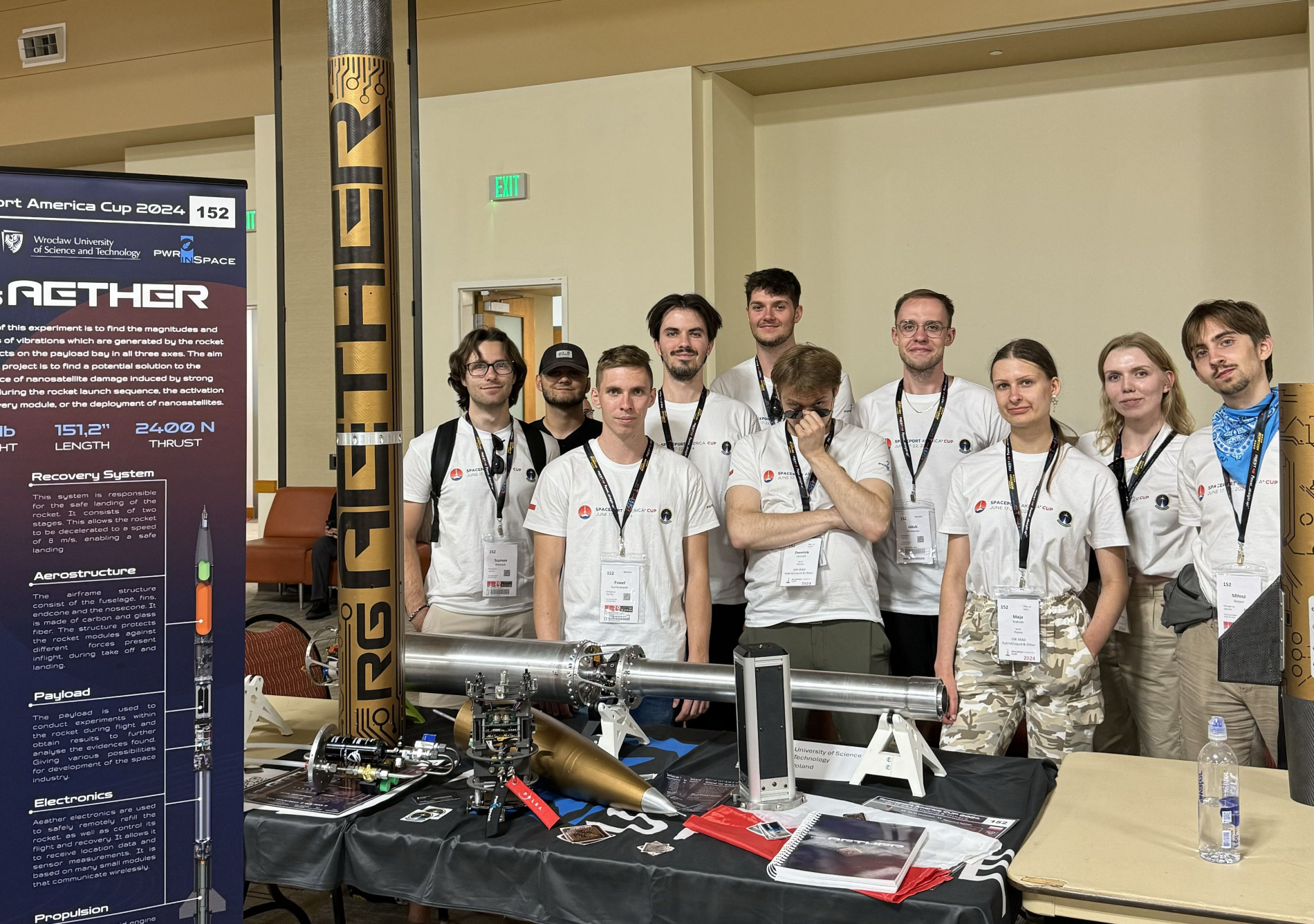
The R6 Aether rocket is an experimental probe rocket, powered by a hybrid engine that requires solid fuel (resin discs with aluminium particles) and a gaseous oxidant (nitrous oxide) for ignition.
It is a modular design, consisting of a hybrid engine, onboard computer, and payload, as well as a separation and recovery system for the rocket, all held together by a support structure.
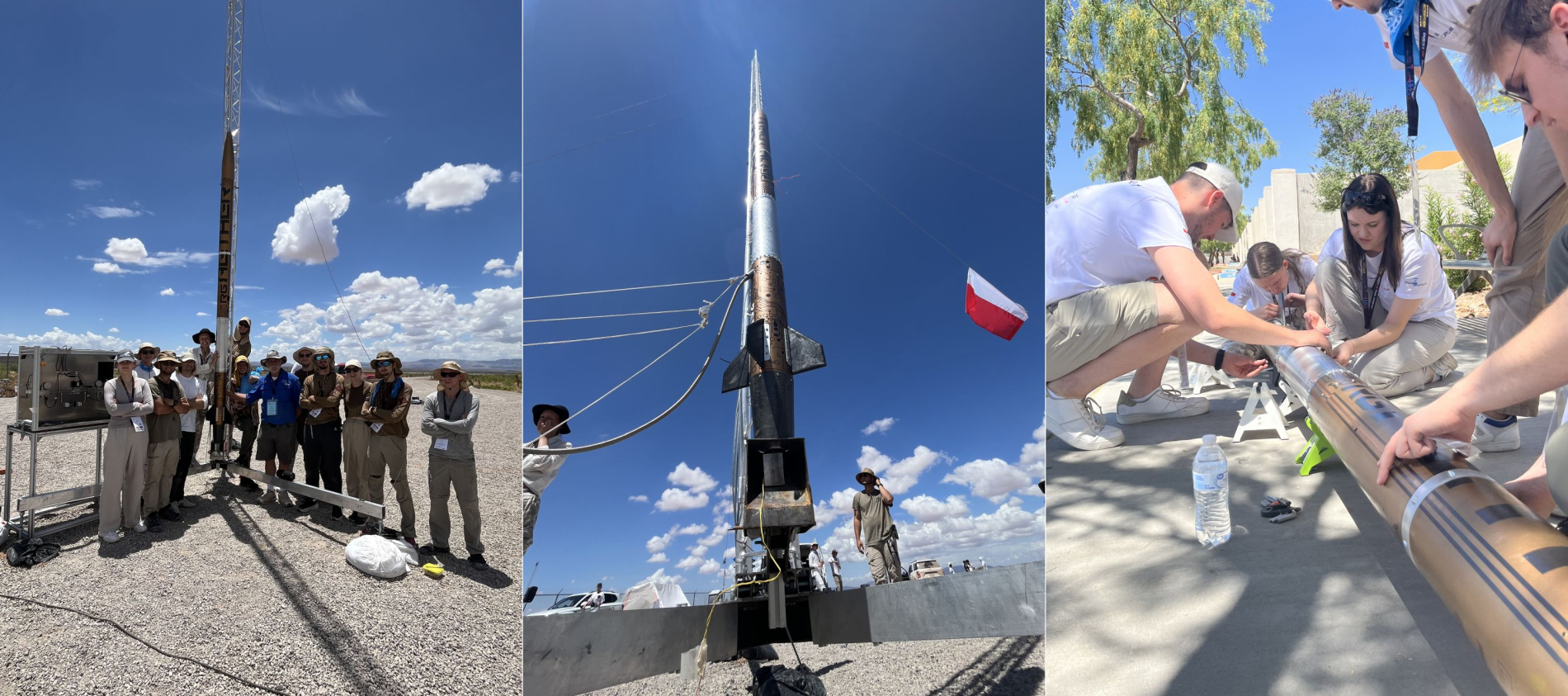
The rocket weighs 29.5 kg and measures 3.84 m, while the maximum thrust of its engine is 2 kN.
Operating at the Faculty of Mechanical Engineering, the “PWr in Space” research club is one of the strategic research societies of Wrocław University of Science and Technology. Its activity is overseen by Dariusz Pyka, PhD, Eng.
Our site uses cookies. By continuing to browse the site you agree to our use of cookies in accordance with current browser settings. You can change at any time.